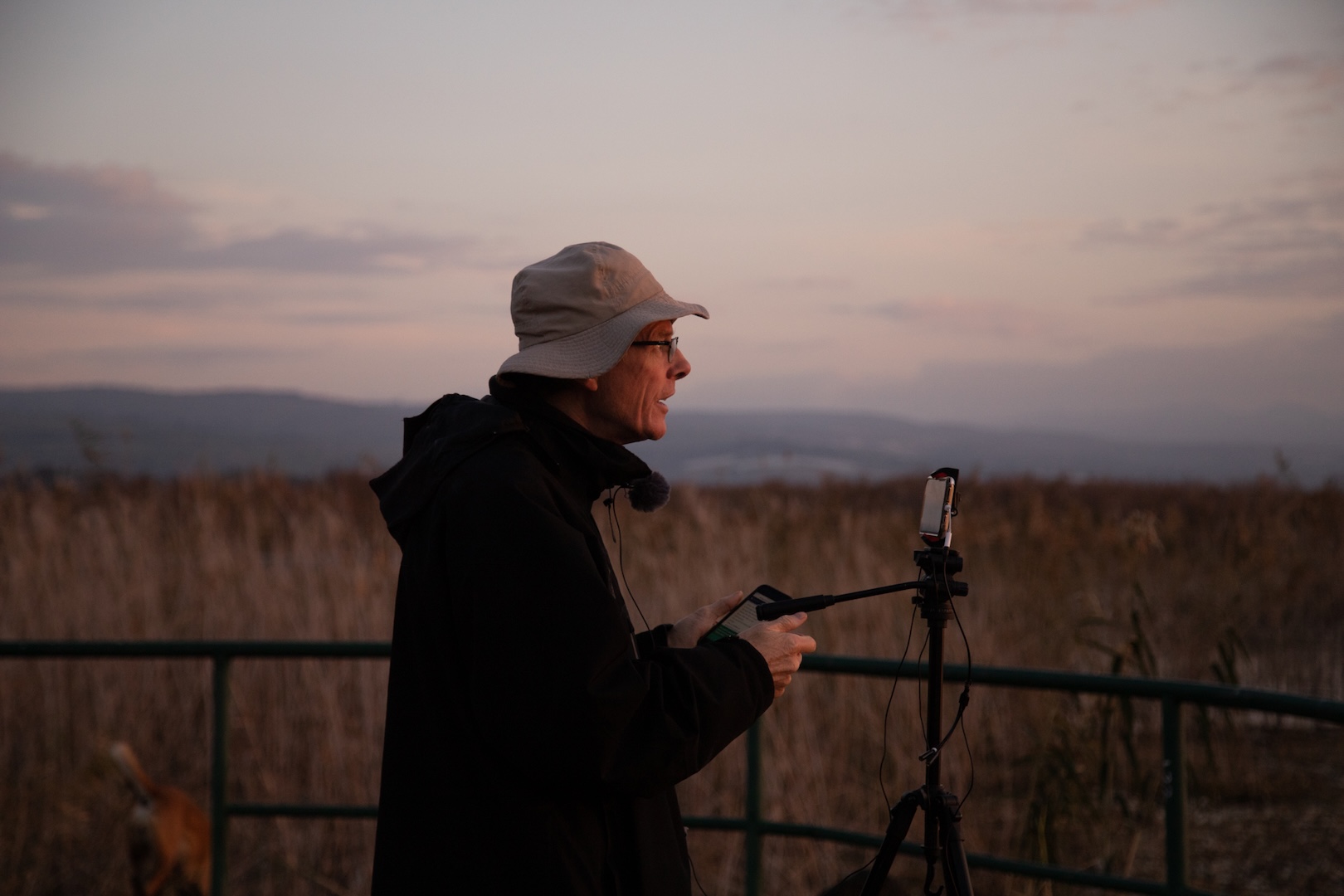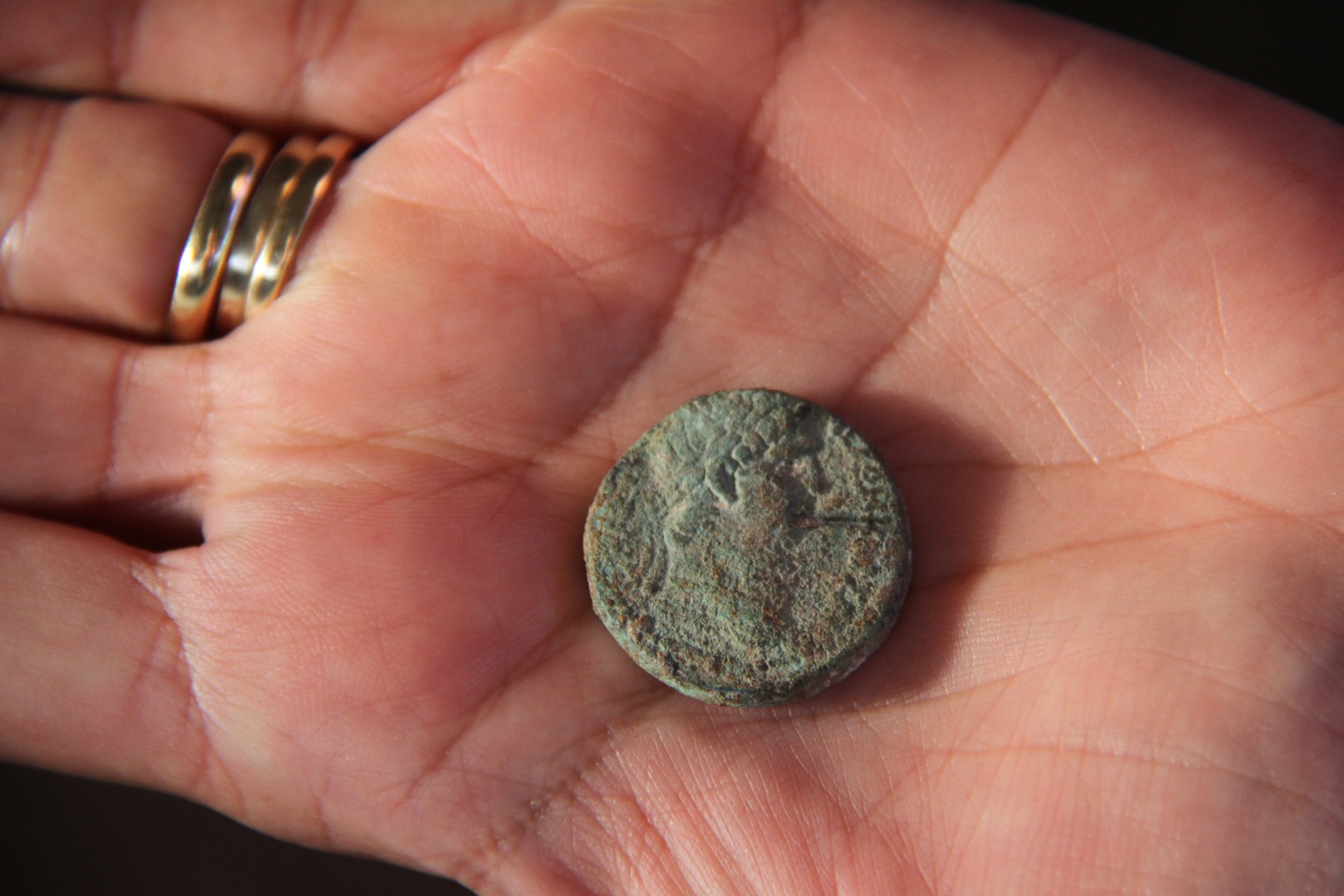Abstract:
Ecumenical and interfaith encounter often follow a narrow ridge where trekkers can easily fall into animosity or proceed with sure step towards deeper friendship. On the one side, the hikers can slip down the steep slope of inconsistent relativism where friendship dissolves in the general meaninglessness of truth. On the other side, the proud and loveless imposition of truth can push the parties into alienation, where the possibility of friendship hopelessly drowns.
Healthy communication, including argument and disagreement with those who think differently can flourish into more profound friendship. What a gift we can all provide for our divided communities which cry out for more oneness. Families are the best training ground toward such maturity.
Healthy argument requires sufficient mutual friendship
Is your friendship more strained or stronger when you’re done arguing?
Last Friday week, I joined some Christian students of various denominations who are studying in Jerusalem for an open question-and-answer session. “You can’t sign that check -- you don’t have that much money in your bank account!” Back up a little!
Some months ago, the Jerusalem University College students visited Galilee and enjoyed a tour of Magdala. There was good chemistry, and they were very open to meeting again. When the circumstances obliged us to move our volunteer team to Jerusalem, a new opportunity opened: a Shroud of Turin Exhibit presentation. It went so well that the Student Leader reported the students requested I come to lead a vesper for them. Vesper for them basically meant to offer another presentation after they sang some praise and worship lyrics. They liked my suggestion that instead of my doing a presentation they could ask this Catholic priest whatever questions they would fancy. No limits. All topics were open. Nothing would be too personal or taken too personally. After relating some milestones of my own story with Jesus, I sensed we had a growing relationship, and we could be frank and honest with each other.
Unsurprisingly, some of the students were waiting for the chance to pose the perpetual conflictive and debated questions. These are often based on certain selected lines of Scripture which seem so evident that they should impose themselves automatically and irresistibly. One could add a few more such questions until gridlock would lead to a communication breakdown and a process of alienation. How do we move forward? Can we find a way to come one step closer?
Here are wonderful young people, dedicated to understanding scripture and the mysteries of salvation and it’s their first ever meeting with a Catholic priest for such an open frank conversation. Most come from pulsating faith communities who sacrifice resources to support them to travel to Jerusalem and dedicate two years to earn their degree. This qualifies them to be hired by Churches, schools, universities for ministry or teaching and eventually proceed to set up their own independent ministries. They are seriously preparing to go out into the world with maximum dedication to teach Christ’s word and the biblical message. How could I as a priest not want to encounter them and become more familiar with them and allow them to discover what inspires and impassions the heart of any Catholic priest. This desire of mine also has a backstory!
Some years ago, I found myself walking ahead of a group of pilgrims alongside their delightful pastor toward Duc In Altum. She remarked: “I’m so happy you gave us the guided tour of the synagogue”. I turned toward her, in expectation of a more precise explanation and she continued “because now I know there is a Catholic priest who loves Jesus!”. She was sincere and meant it as a compliment. It was like a dagger to my heart. I was speechless. Almost stunned. I pondered the implications of her enthusiastic expression of her discovery. She had led a community of Christians for many years and had studied the scriptures, theology and some history of Christianity.
For whatever causes, she had considered spontaneously that Catholic priests do not love Jesus. During my explanation of the synagogue, I had not said I loved Jesus. But she picked up that piece of data spontaneously, during my explanation. The following times pastors uttered similar comments I was prepared to reply with my personal impressions of the hundreds and thousands of priests and seminarians I have known since I joined the seminary in 1974 after completing high school. On sketching the parameters of a few implicit decisions any young man would make when joining a seminary to become a priest, each of these pastors could immediately grasp the loving Christ-centered motivations needed for venturing such a life transforming step. This blossomed into a formidable transformative discovery that shattered long-held apparent prejudices about the Catholic Church, and Catholic priests.
When we don’t meet the other, listen to different perspectives, and consider the diverse faith traditions, we rely on what we heard about them or what we might imagine about them. Respectful, personal encounter is vital if we are to get to know each other and overcome prejudice. We can replace our outsider assumptions with insider familiarity. Otherwise, when we meet a very different kind of Christian, we can tend to go straight for the argument and call each other out. How will such behavior improve our divided and divisive world?
Firstly, why not treasure the person in front of me, as a sister or brother in Christ? Experience the immense divine love we share and develop powerful friendship on this common foundation. “Tell me your story!” When we listen to each other’s background we can understand each other much better. Then we might argue about scriptural and theological points but in a way that allows each other to gain insight and strengthen our friendship, not harm it and alienate ourselves, one from the other. This cannot be built with mere academic smarts but requires virtues of charity, respect, mutual appreciation, and listening, which is an ancient foundational biblical discipline. When our friendship is mature, we can argue vehemently and watch our friendship flourish rather than aggravate our relationships.
Soon we will celebrate sixty years since the Second Vatican Council promulgated Unitatis Redintegratio, the document on relationships with all Christians, November 21, 1964.
Already in #4, it calls for initiatives and actions:
- to avoid misrepresentation of what the differing Christians understand they are and believe exactly.
- Through encounters and dialogue, we are to pursue truer knowledge and more just appreciation of each other.
- This prepares the way for collaboration in responding to the needs of the common good and even prayer together.
- In this way, we will all be helped in our greater conformity with God’s will for us and gradually overcome the obstacles to our good mutual relationships.
The document encourages us to generously initiate such encounters and then promptly makes clear that as Catholics we are to begin to renew the Church by reforming our own lives in all fervor, humility, mutual respect and charity. We also hear this wisdom expressed similarly when folks who want to change the world are instructed to change themselves first. We are all to admire the virtues and wonderful works of God in our fellow Christians. Bishops are to vigorously encourage all these initiatives.
In the last 60 years countless actions have been undertaken and marvelous fruits have matured in our relationships. Here are some outstanding examples:
- Catholic-Lutheran declaration on redemption "Joint Declaration on the Doctrine of Justification" signed on October 31, 1999, in Augsburg, Germany.
- The fact that it was possible to have both Cardinal William Levada, then-Prefect of the Congregation for the Doctrine of the Faith, and Archbishop Rowan Williams, the then-Archbishop of Canterbury, together at the press conference announcing the establishment of the Anglican Ordinariate on January 1, 2011, expressing the commitment for Christian unity. The document "Anglicanorum coetibus"allows for the integration of Anglican clergy and laity into the Catholic Church while preserving elements of Anglican worship. In other times, this dramatic step and its joint announcement would have been unthinkable.
- The Catholic – Pentecostal International Dialogue, the two most numerous communities worldwide, is running consistenly since 1972 and has published many papers of understanding on a variety of themes. Dip into http://www.christianunity.va/content/unitacristiani/en/dialoghi.html and find an astonishing array of records of vastly improving relationships on many levels between the major branches of Christianity.
- The Joint Theological Commission for the Catholic Church and the Orthodox Church ongoing dialogue regarding the exercise of authority in the Church, published several documents between 2007-2016 on synodality and primacy within the broader context of ecclesial governance. Mutual respect has matured as Catholic and Orthodox leaders acknowledge our shared faith and sacramental life that bind our communities. Another beautful fruit of this dialogue has been a deeper theological reflection on the nature of the Church.
Many other developments merit celebration and commentary.
It is always easier to gather with like-minded folks. Meeting with those who think differently keeps us on our toes, noticing sensitivities and being alert to consider their mind frames and hot buttons. This can readily exhaust us and test our nerves. But athletes require challenges to grow and improve. May our oneness grow at a faster pace than our differences so we can always have more than enough friendhsip in the bank to cope with all our diversity and arguments as we grow closer to each other.
How much friendship have you in the bank when you consider the people with whom you argue? Is your friendship more strained or stronger when you’re done arguing? We want to grow closer together, not further away from each other.
Get to Know...
Ali Kharanba, Receptionist

Ali Kharanba, 30, a proud dad of a baby girl, resides with his wife in nearby Maghar. Ali is the oldest of seven siblings who are now all married. He recalls how his grandfather always encouraged him to work hard and help people.
Ali’s Bedouin family was dispersed in the aftermath of the 1948 war and some live in Jordan and in Syria where conditions these recent years are very difficult. Some of those in Syria were able to leave to Germany where they are already speaking the language, learning the culture and working to provide for their families. Despite all the dispersion the entire family stays in touch via social media.
While Ali awaits employment as a nurse for which he studied five years for his degree from Ziv Nursing School in Zefat, he works two receptionist positions, one at Magdala and another one at another hotel. Magdala visitors love his professional, pleasant and joyful approach as he helps them in every way. He is proud to serve at the Reception Desk which he calls the mirror of the entire guest service. “We give the guests what they need.”
Ali loves Magdala. Although Muslim, he recognizes that Duc In Altum is a major source of the good spirit here.
Ali hopes to find employment as a nurse eventually since he chose this profession due to its immediate primary focus to help people in very concrete need.
Meanwhile, should he begin nursing soon, Ali would still like to continue at least part-time in Magdala serving guests. “Magdala feels like home! We have all the religions here. The spirit is good. We feel like one big family.”
Discover more articles from this category






